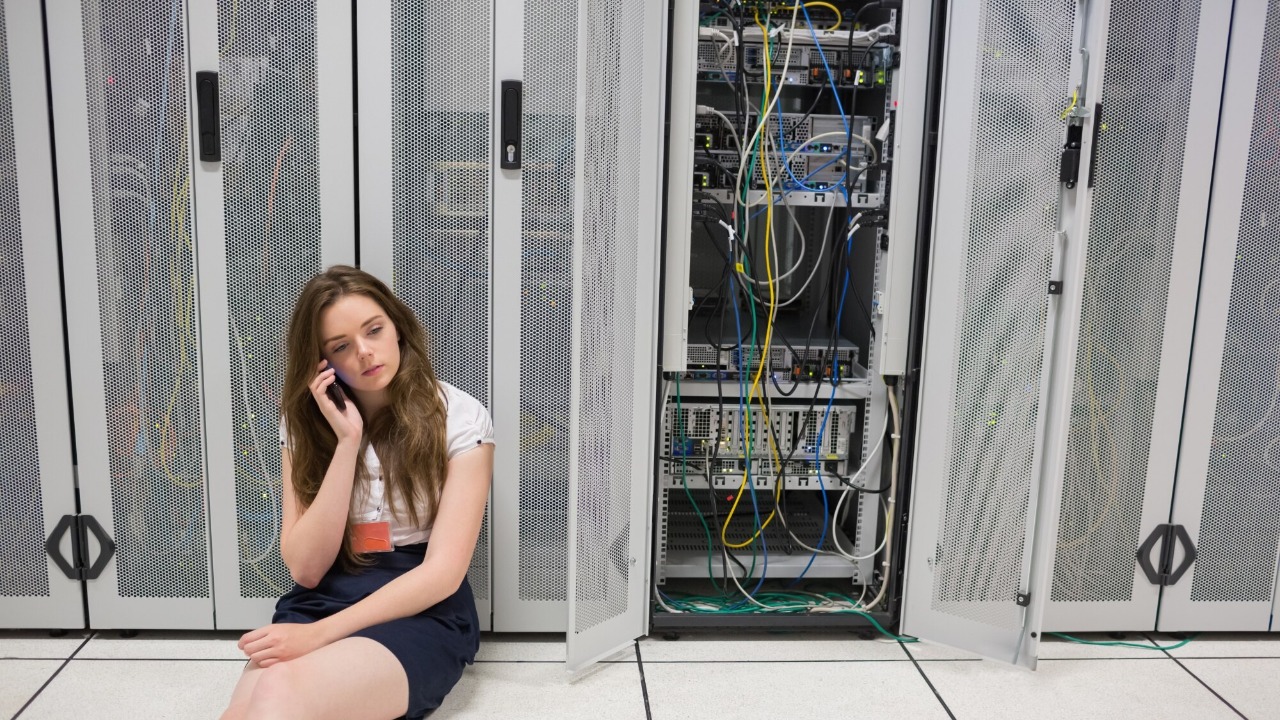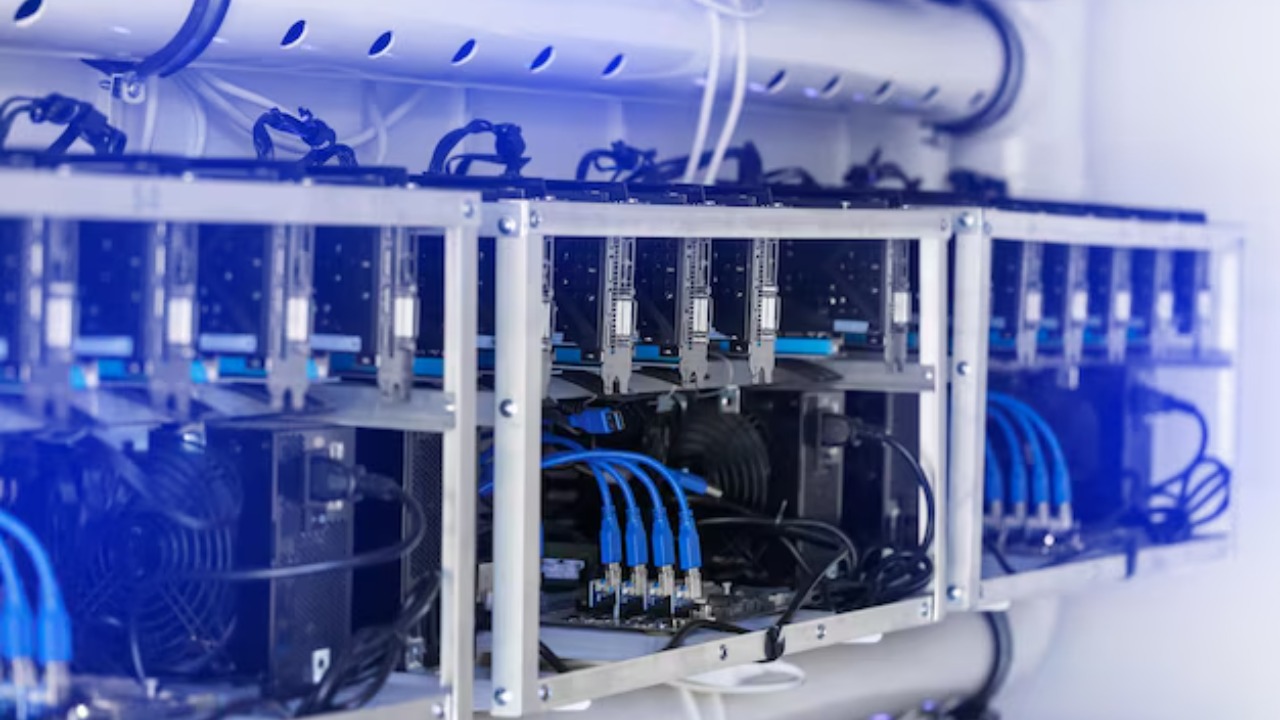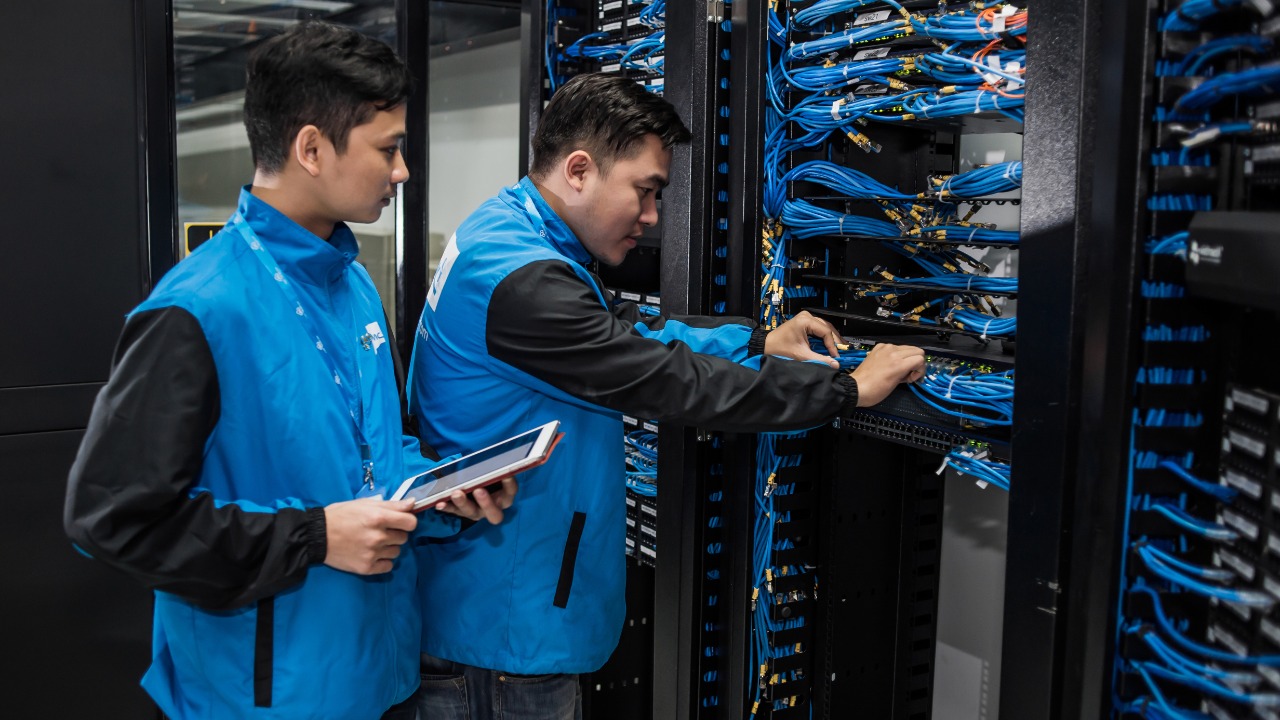
Microsoft has introduced a groundbreaking innovation with its new liquid-cooled computer chips, aimed at preventing AI data centers from overheating. This development leverages microfluidics technology to enhance efficiency and reduce energy consumption, potentially leading to more powerful and energy-efficient data centers. The company’s efforts are a significant step towards addressing the critical issue of overheating in AI data centers, which is becoming increasingly prevalent as the demand for AI processing power grows.
The Problem of Overheating in AI Data Centers

AI data centers are facing mounting challenges due to overheating, which can lead to inefficiencies and increased energy consumption. As AI technologies advance, the demand for processing power continues to rise, putting additional strain on existing cooling systems. Traditional cooling methods, such as air conditioning and fan-based systems, are becoming less effective, unable to keep up with the heat generated by high-performance computing tasks. This inefficiency not only affects the performance of AI systems but also contributes to higher operational costs and environmental impact.
Overheating in data centers can result in hardware failures, reduced lifespan of equipment, and increased downtime, all of which can have significant financial implications. The need for more effective cooling solutions is critical to ensure the reliability and sustainability of AI data centers. As the industry seeks to address these challenges, innovative approaches like Microsoft’s liquid-cooled chips offer promising solutions to enhance the efficiency and performance of data centers.
In addition to the direct effects of overheating, there are broader implications for the industry. The increased energy consumption required to cool overheated systems contributes significantly to the carbon footprint of data centers. According to industry experts, data centers are responsible for approximately 1% of global electricity demand, and inefficient cooling systems exacerbate this issue. As AI continues to proliferate across various sectors, the environmental impact of data centers is expected to grow unless more sustainable cooling solutions are implemented. This underscores the urgency for innovations like Microsoft’s liquid-cooled chips, which promise to mitigate these environmental concerns by enhancing energy efficiency and reducing reliance on traditional cooling methods.
Microsoft’s Liquid-Cooled Chips: A Technological Breakthrough

Microsoft’s new computer chips utilize liquid cooling to manage heat more effectively, representing a significant technological breakthrough. By integrating microfluidics technology, these chips allow for precise temperature control, addressing the limitations of traditional cooling methods. This innovation is designed to handle the intense heat generated by AI workloads, ensuring that data centers can operate efficiently without the risk of overheating.
The use of liquid cooling in Microsoft’s chips involves circulating a coolant through microchannels within the chip, directly removing heat from the source. This method is more efficient than air cooling, as liquids have a higher thermal conductivity and can absorb more heat. According to Live Science, this approach not only enhances cooling efficiency but also reduces the overall energy consumption of data centers, making it a sustainable solution for the future.
Moreover, the integration of microfluidics technology in Microsoft’s chips is not just a leap forward in cooling efficiency but also in chip design. This technology allows for a more compact and efficient layout, potentially reducing the size and cost of data center infrastructure. As reported by Live Science, the precision of microfluidics enables targeted cooling, which can be adjusted dynamically based on the workload, further optimizing energy use. This adaptability is crucial as AI workloads can vary significantly, requiring flexible solutions that can respond in real-time to changing demands.
Benefits of Liquid Cooling in Data Centers

Liquid cooling offers several benefits for data centers, including significantly lower heat levels and enhanced operational efficiency. By effectively managing heat, liquid cooling systems can maintain optimal performance levels, reducing the risk of hardware failures and extending the lifespan of equipment. This approach also leads to cost savings, as it reduces the need for energy-intensive air conditioning systems and minimizes the risk of costly downtime.
Furthermore, the reduction in energy use associated with liquid cooling can lead to a decreased environmental footprint. As data centers consume a substantial amount of energy, implementing more efficient cooling solutions is crucial for reducing their impact on the environment. According to TechRadar, Microsoft’s liquid-cooled chips could pave the way for more sustainable data center operations, aligning with global efforts to reduce carbon emissions and promote energy efficiency.
Additionally, liquid cooling systems can contribute to quieter data center environments. Traditional air cooling systems often rely on large fans and air conditioning units, which can generate significant noise. By contrast, liquid cooling systems operate more quietly, creating a more pleasant working environment for data center personnel. This can improve working conditions and potentially increase productivity. Furthermore, as noted by TechRadar, the reduced noise pollution aligns with broader efforts to create more sustainable and human-friendly industrial environments.
Potential Impact on the Future of AI and Computing

The introduction of liquid-cooled chips by Microsoft could have a profound impact on the future of AI and computing. By enabling data centers to handle higher processing demands without overheating, this innovation could pave the way for more powerful AI systems. As AI applications become more complex and require greater computational power, the ability to efficiently manage heat will be crucial for unlocking their full potential.
If proven successful, the adoption of liquid-cooled chips might become a standard industry practice, influencing future data center designs. This shift could lead to a new era of computing, where data centers are not only more powerful but also more sustainable. As the industry continues to evolve, innovations like Microsoft’s liquid-cooled chips will play a vital role in shaping the future of AI and computing, ensuring that data centers can meet the growing demands of the digital age.